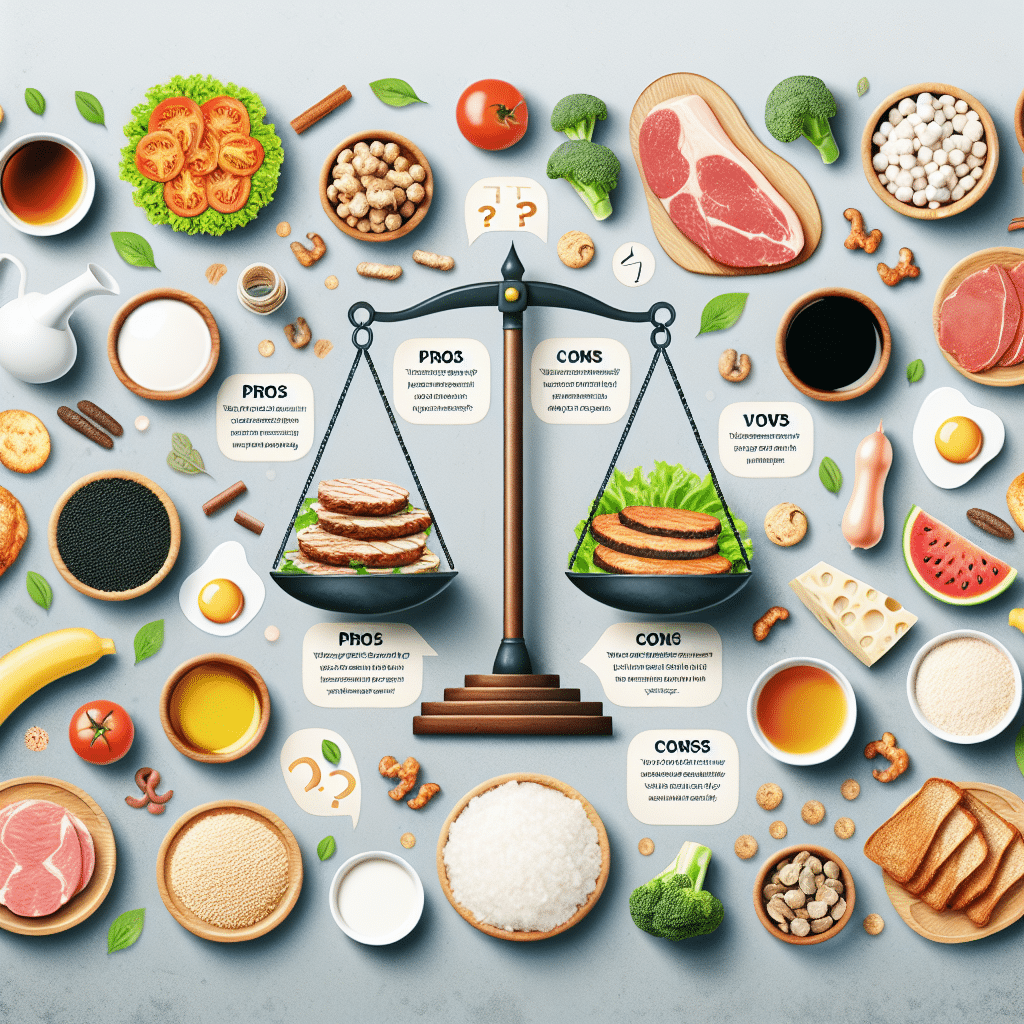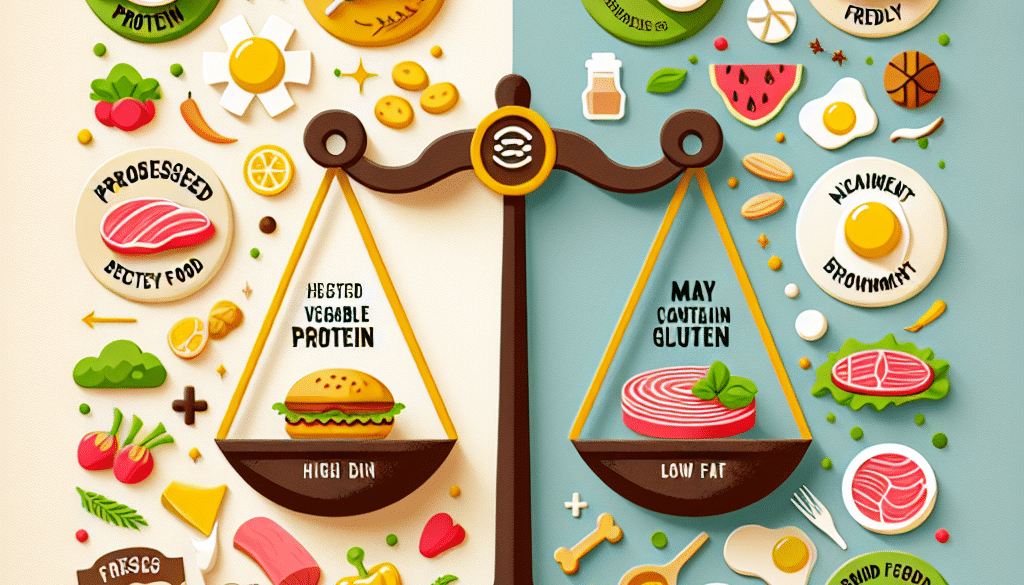Is TVP Good Or Bad For You? The answer
Table of Contents
- TVP: A Comprehensive Analysis of Its Health Impacts
- What is Textured Vegetable Protein?
- Nutritional Profile of TVP
- Health Benefits of TVP
- Potential Concerns with TVP
- Comparing TVP to Other Protein Sources
- Case Studies and Research
- How to Incorporate TVP into Your Diet
- Conclusion: Balancing the Pros and Cons of TVP
- Discover ETprotein’s High-Quality Protein Products
TVP: A Comprehensive Analysis of Its Health Impacts

Textured Vegetable Protein (TVP) has become a staple in vegetarian and vegan diets as a versatile and protein-rich food ingredient. However, as with any food product, it’s essential to understand the health implications of incorporating TVP into your diet. This article delves into the nutritional benefits and potential concerns associated with TVP consumption, providing a balanced perspective on its role in a healthy diet.
What is Textured Vegetable Protein?
Textured Vegetable Protein, commonly known as TVP, is a highly nutritious soy product. It’s made by extracting soy protein from defatted soy flour, which is then processed into various shapes and sizes. TVP is known for its ability to mimic the texture of meat, making it a popular meat substitute for vegetarians and vegans. It’s also relatively flavorless, which allows it to absorb spices and seasonings well, making it a versatile ingredient in many recipes.
Nutritional Profile of TVP
TVP is celebrated for its impressive nutritional content. Here’s a breakdown of its key nutrients:
- High Protein Content: TVP is a complete protein source, containing all essential amino acids.
- Fiber: It provides dietary fiber, which is beneficial for digestive health.
- Low Fat: TVP is low in fat, particularly saturated fat, making it a heart-healthy choice.
- Vitamins and Minerals: It contains various vitamins and minerals, including iron, magnesium, and phosphorus.
- Zero Cholesterol: TVP has no cholesterol, which is advantageous for maintaining healthy blood cholesterol levels.
Health Benefits of TVP
Given its nutrient-rich profile, TVP offers several health benefits:
- Weight Management: The high protein and fiber content can promote satiety, helping to control appetite and support weight management.
- Heart Health: Being low in fat and cholesterol-free, TVP can contribute to a heart-healthy diet.
- Muscle Maintenance: As a complete protein, it supports muscle repair and growth, which is particularly beneficial for athletes and those with increased protein needs.
- Anemia Prevention: The iron content in TVP can help prevent anemia, especially in individuals with higher iron requirements, such as pregnant women.
Potential Concerns with TVP
While TVP has many health benefits, there are also potential concerns to consider:
- Soy Allergies: Individuals with soy allergies should avoid TVP as it can trigger allergic reactions.
- Phytoestrogens: Soy contains phytoestrogens, which have been the subject of debate regarding their effects on hormone levels, although most research indicates they are safe in moderation.
- GMOs: Some TVP is made from genetically modified soybeans, which some consumers prefer to avoid. However, organic and non-GMO options are available.
- Processing: TVP is a processed food, and some health advocates recommend limiting processed foods in the diet.
Comparing TVP to Other Protein Sources
When considering TVP as a protein source, it’s helpful to compare it to other proteins:
- Animal Proteins: TVP is a viable alternative to animal proteins, offering similar protein content without the saturated fat and cholesterol.
- Other Plant Proteins: Compared to other plant proteins like legumes, TVP often contains more protein per serving and is a complete protein, whereas most plant proteins are not.
Case Studies and Research
Several studies have highlighted the benefits of incorporating soy products like TVP into the diet. For instance, research has shown that soy protein can help lower LDL cholesterol levels, potentially reducing the risk of heart disease. Additionally, studies on weight management have found that high-protein diets that include soy protein may aid in weight loss and body composition improvements.
How to Incorporate TVP into Your Diet
Incorporating TVP into your diet is simple, given its versatility. Here are some ideas:
- Use it as a meat substitute in dishes like chili, tacos, and spaghetti bolognese.
- Add it to soups and stews for a protein boost.
- Include it in veggie burgers or meatless meatballs.
Conclusion: Balancing the Pros and Cons of TVP
In conclusion, TVP can be a nutritious addition to your diet, especially if you’re looking for a plant-based protein source. It offers numerous health benefits, including being a complete protein, low in fat, and containing no cholesterol. However, it’s also important to be mindful of potential concerns such as soy allergies and the presence of GMOs in some products. As with any food, moderation and variety are key to a balanced diet.
Discover ETprotein’s High-Quality Protein Products
If you’re interested in exploring high-quality protein options, consider ETprotein’s range of products. They offer a variety of organic bulk vegan proteins that cater to different dietary needs and preferences. Their products are characterized by a neutral taste, non-GMO, allergen-free attributes, and high purity levels, making them an excellent choice for those seeking to incorporate more plant-based proteins into their diets.
About ETprotein:
ETprotein, a reputable protein and L-(+)-Ergothioneine (EGT) Chinese factory manufacturer and supplier, is renowned for producing, stocking, exporting, and delivering the highest quality organic bulk vegan proteins and L-(+)-Ergothioneine. They include Organic rice protein, clear rice protein, pea protein, clear pea protein, watermelon seed protein, pumpkin seed protein, sunflower seed protein, mung bean protein, peanut protein, and L-(+)-Ergothioneine EGT Pharmaceutical grade, L-(+)-Ergothioneine EGT food grade, L-(+)-Ergothioneine EGT cosmetic grade, L-(+)-Ergothioneine EGT reference grade and L-(+)-Ergothioneine EGT standard. Their offerings, characterized by a neutral taste, non-GMO, allergen-free attributes, with L-(+)-Ergothioneine purity over 98%, 99%, cater to a diverse range of industries. They serve nutraceutical, pharmaceutical, cosmeceutical, veterinary, as well as food and beverage finished product distributors, traders, and manufacturers across Europe, USA, Canada, Australia, Thailand, Japan, Korea, Brazil, and Chile, among others.
ETprotein specialization includes exporting and delivering tailor-made protein powder and finished nutritional supplements. Their extensive product range covers sectors like Food and Beverage, Sports Nutrition, Weight Management, Dietary Supplements, Health and Wellness Products, and Infant Formula, ensuring comprehensive solutions to meet all your protein needs.
As a trusted company by leading global food and beverage brands and Fortune 500 companies, ETprotein reinforces China’s reputation in the global arena. For more information or to sample their products, please contact them and email sales(at)ETprotein.com today.












